
Ross Levine, MD, Named Chief Scientific Officer of Memorial Sloan Kettering Cancer Center
Memorial Sloan Kettering Cancer Center (MSK) announced today that Ross Levine, MD, has been named MSK’s new Chief Scientific Officer (CSO). A renowned physician-scientist, Dr. Levine previously served as Senior Vice President of Translational Research in Memorial Hospital (MH) and holds the Edward P. Evans Endowed Chair for Myelodysplastic Syndromes at MSK.
In the Lab

AACR 2021 Research Roundup: Chromosomal Instability, Early Changes in Blood Cancer, Revamping CAR T Cell Therapy
MSK researchers shared their latest research developments at the 2021 meeting of the American Association for Cancer Research.
In the Lab
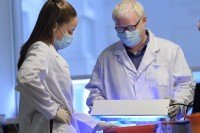
Single-Cell Study Sheds Light on Leukemia’s Family Tree
New research looks at how a series of mutations in normal blood cells can lead to them becoming cancerous and how these mutations accumulate as cancer progresses.
Finding
Why Do Certain Chemotherapies Increase the Likelihood of Blood Cancer?
New research focuses on clonal hematopoiesis, an age-related blood condition that increases the risk of blood cancer.
Feature
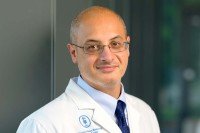
What Is Epigenetics, and Why Is Everyone Talking about It?
The word “epigenetic” literally means “above the genes.” Calico cats demonstrate a type of epigenetic inheritance called X-inactivation.
Finding
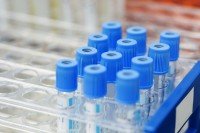
Secondary Leukemia: Research Suggests New Ways to Understand What Causes This Side Effect of Cancer Treatment
MSK investigators find that the presence of certain gene mutations in patients’ blood may mean they are more likely to get a secondary leukemia.
In the Lab
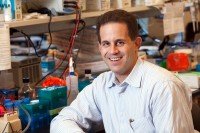
Researchers Discover Why Some Leukemia Drugs Are Not Sufficiently Effective
Memorial Sloan Kettering researchers have found why certain drugs are not sufficiently effective in treating leukemias called myeloproliferative neoplasms.
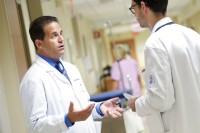
Memorial Sloan Kettering Researchers Discover How Gene Mutation Contributes to Leukemia
A study led by researchers at Memorial Sloan Kettering and New York University has shown that <i>TET2</i> loss enhances the function of blood stem cells, causing them to renew themselves more efficiently than normal blood stem cells.

Gene Mutation Contributes To Leukemia By Enhancing Function Of Blood Stem Cells
Memorial Sloan Kettering researchers helped to identify a key insight into what first goes wrong in the development of many leukemias.
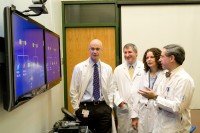
Genetic Information Becomes a Vital Part of Clinical Practice
At Memorial Sloan Kettering, as the genetics revolution continues to flourish, discoveries made in the laboratory are increasingly producing real-world benefits for cancer patients.
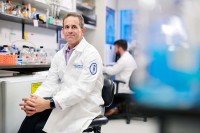
At Work: Physician-Scientist Ross Levine
Physician-scientist Ross Levine analyzes the genetic makeup of cancer cells to identify disease pathways.










